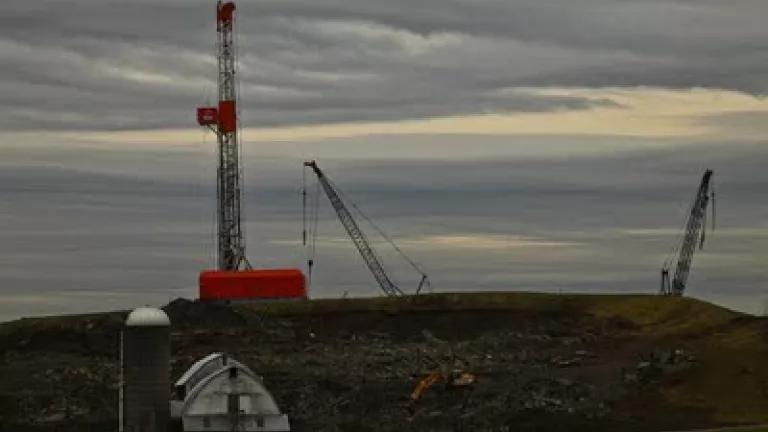
Tomorrow a State judge in Tompkins County will hear arguments on a small town ordinance that is at the center of a big new issue in New York fracking world – municipal zoning.
The crux of the case is whether the Town of Dryden – a suburb of Ithaca, New York – can invoke its long-standing, delegated powers under state law to regulate how land is used within its borders in order to protect the health of its residents and their property from heavy industrial operations, including hydraulic fracturing for natural gas.
A drilling company, Anschutz Exploration Corporation, filed suit claiming that the Town’s recent ordinance prohibiting fracking under its zoning authority is overridden – or “preempted” – by state laws regulating gas drilling.
NRDC is closely watching this case and a similar lawsuit now pending against a zoning ordinance in the Town of Middlefield – a small town of just over 2,000 people outside of Cooperstown, NY. And – along with some key allies – we hope to file a brief as an amicus, or “friend of the court,” in the upcoming Middlefield case and will continue to stay involved in this and other municipal zoning litigation in the future.
In short, NRDC strongly objects to the argument, asserted by the industry plaintiff in the Dryden case that they can begin gas drilling without regard for the comprehensive development plans and zoning laws democratically adopted by Dryden and other towns statewide. For nearly a century, zoning law in New York has given its citizens both a voice in the growth of their communities and the power to keep hazardous industrial activities out of areas where they could do the most harm.
As the prospect of a new type of industrial activity – fracking – may soon become a reality in New York, many towns and villages have taken precautionary measures into their own hands to protect their residents and the places where they live and farm. While some towns already have ordinances which would prohibit gas drilling and other heavy industrial activities in sensitive places such as residential neighborhoods or school zones, there are a growing number of communities, particularly rural or scenic areas, who have made the decision that fracking is unsuitable for the town as a whole, therefore zoning it out completely. The Town of Dryden, a predominantly rural community, decided to do just that.
The outcome of this case does not hinge on the pro or cons of natural gas in our national energy mix, or even the potential impacts of fracking operations specifically. Nor will it determine whether Dryden has the power to zone in general.
Rather, the primary question before the Court is whether Dryden’s traditional ability to zone gas drilling activities has been preempted altogether by the State’s primary gas drilling statute, the New York “Oil, Gas, and Solution Mining Law” (OGSML). To put this in a real world context: did State legislators, in passing the OGSML, intend to deprive small towns of power to prevent a gas well from being put next to a preschool?
New York’s highest court – the Court of Appeals – has never taken up the precise issue of how local zoning interacts with this State law. But the Court has previously recognized local power to zone similar types of industrial activity – namely, gravel mining. And courts in other states, including Pennsylvania and Colorado, have concluded that localities can maintain their traditional zoning powers even where state officials get to dictate the technical details of gas and oil drilling operations – for example, the thickness of the cement required for well walls or how to treat contaminated wastewater. (As my colleagues have previously written about, these technical details are currently being hashed out in the State’s draft Supplemental Generic Environmental Impact Statement and proposed regulations on fracking.)
The U.S. Supreme Court has also had something to say about the power of zoning. In its landmark 1926 case, Village of Euclid v. Ambler Realty Co., the high court first established the principle that it is constitutional for municipalities to zone land within their borders to ensure that competing land uses do not interfere with one another. As Justice George Sutherland famously stated in the opinion, an inappropriate use “may be merely a right thing in the wrong place, like a pig in the parlor instead of the barnyard.”
Consistent with this historic ruling, NRDC maintains that New York’s own judicial tradition of supporting a locality’s robust authority to decide where – if at all – a harmful industrial activity will be located within its borders is essential to the time-honored rights and democratic development choices of the State’s rural, urban, and suburban communities.
Or stated another way, if the State regulates the livestock industry, then citizens should be free to keep pigs out of their living rooms.
I greatly appreciate the assistance of Dan Raichel, a legal fellow at NRDC, for help in drafting this blog.
